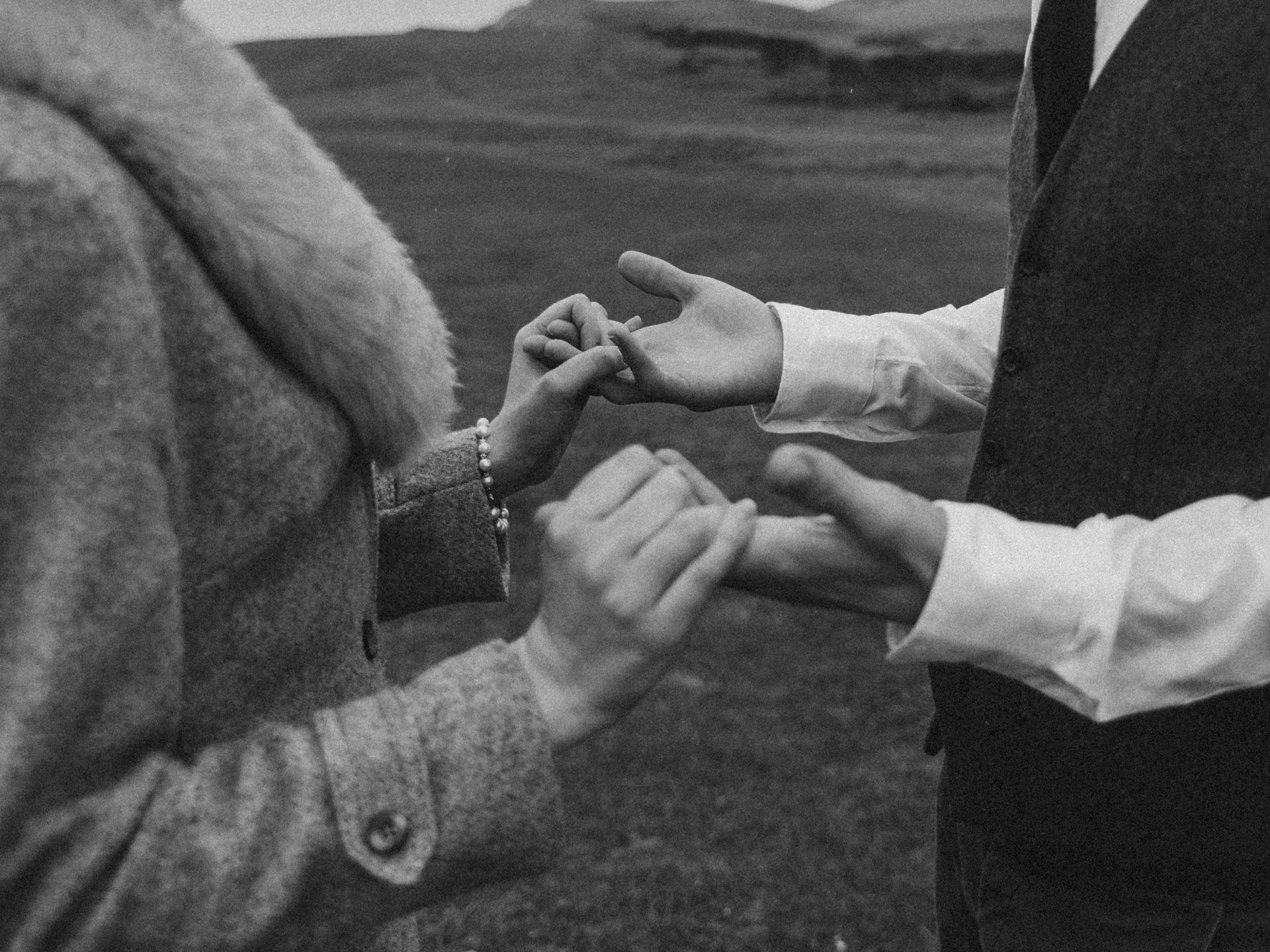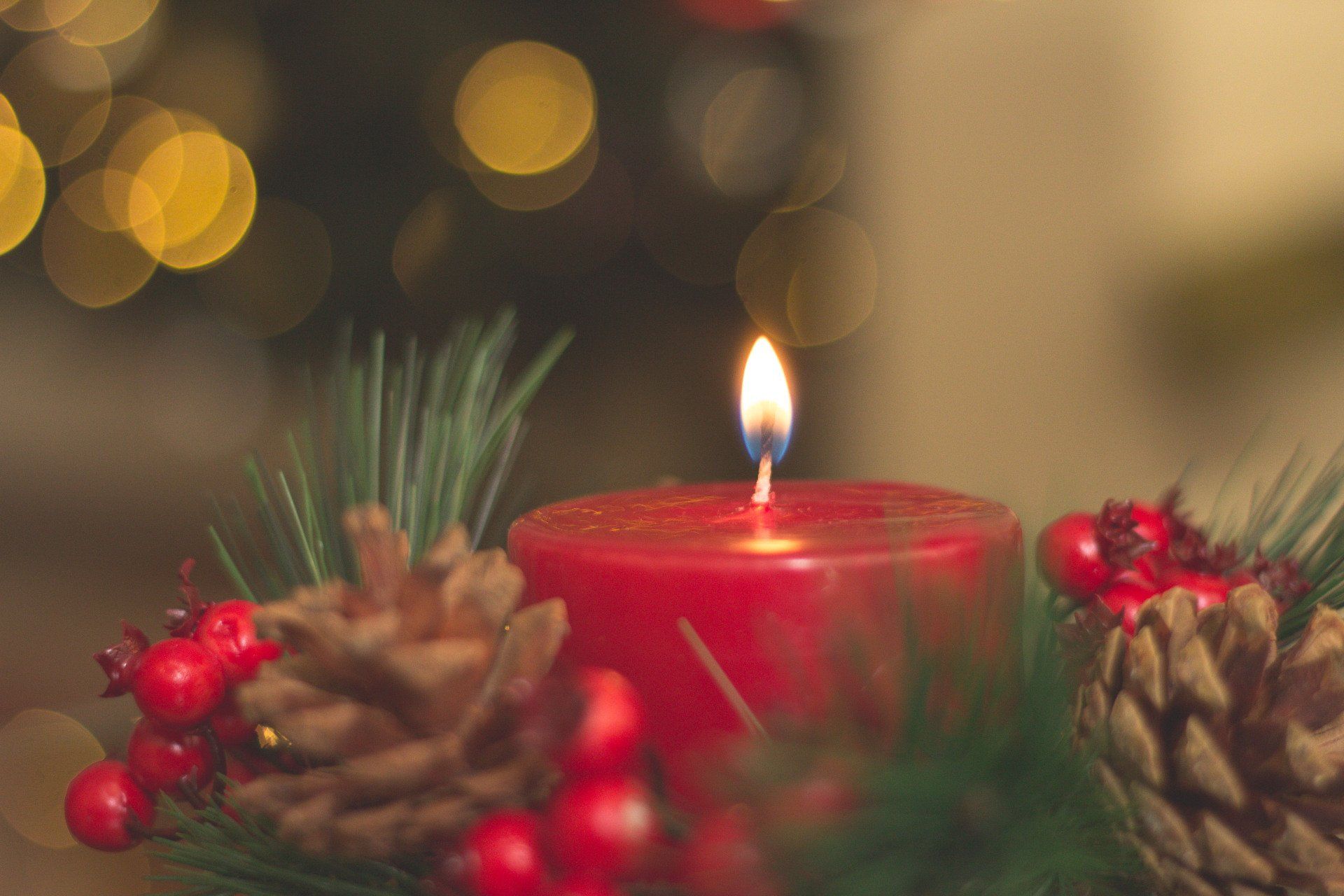Ruth
Commitment from Love, Ruth 1: 1-18

We’re looking at the book of Ruth and it’s such an interesting book.
There are only two books in the Bible that are named after women. And they're both in the Old Testament. The other one is the Book of Esther and this Book of Ruth. The name Ruth means friendship, or companion, or compassionate friendship. She is true to her name and we’ll see that later. It is the only book in scripture that is named after an ancestor of Jesus. Ruth shows up in the genealogical record (Matt 1:5). Also, it is the only book in the Old Testament that is named after a non-Jewish person. Ruth was not Jewish. She was Gentile. She comes from the land of the Moabites.
So onto our story. Verse 1, “In the days when the judges ruled, there was a famine in the land. So a man from Bethlehem in Judah, together with his wife and two sons, went to live for a while in the country of Moab."
Now it says, “In the days when the judges ruled." The book of Judges was one of the darkest times in Israel's ancient history. It was a time of anarchy. There was no king in Israel. Everyone did what they wanted to do. They didn't want to obey God. They didn't want to obey God's laws. They didn't care about authority because there really was no central authority.
2 Chronicles 15:5-6 describes this time of ‘when the Judges ruled’ and I’m reading from The Message. "At that time, it was a dog-eat-dog world. Life was constantly up for grabs. No one, regardless of country, knew what the next day might bring. Nation battered nation. City pummelled city. And God let loose every kind of trouble among them." That sums up the era of the Judges.
And verse 1 also says there was a famine in the land. Now famine was pretty typical in the Middle East. There were so many reasons that you could have a famine. You could have a famine because of drought. You could have a famine because of locusts. So life in Judah was not good. There’s no food and it’s a lawless place. I imagine there would have been desperate people doing desperate things.
Still verse 1, "So a man from Bethlehem in Judah, together with his wife and two sons, went to live for a while in the country of Moab. The man’s name was Elimelek, his wife’s name was Naomi," Naomi means pleasant. " and the names of his two sons were Mahlon and Kilion. They were Ephrathites from Bethlehem, Judah. And they went to Moab and lived there.” (Ruth 1:1-2)
The name of his two sons were Mahlon, which means sickly, and the second child, Chilion, which means pining or weeping and crying. Not great names, right? But perhaps they were born during the famine and strife, and lived their lives with names that reminded the whole family of that awful time.
Elimelech (Naomi’s husband) is a great name. It means my God is King. So wherever he would go, he would say my name is my God is King. His name was his testimony. And yet, I wonder if he was trusting that God was his King when he decided to take his wife to a pagan country outside of Judah.
This is all just verse 1 but moving to Moab is SUCH a big deal. There’s history you see (as there always is in the Bible). The Moabite people were the result of a sexual encounter between Moab was the child of Lot and his daughters. So the Jews never looked kindly upon the Moabites. In fact, they kind of viewed them with disgust.
So it’s huge to decide to go to Moab. Obviously looking over from Bethlehem across the Dead Sea, he could see the highlands of Moab where there was a lot of rainfall, and it seemed like a good idea. So he moves his family.
Then verse 3 & 4, " Now Elimelek, Naomi’s husband, died and she was left with her two sons. They married Moabite women, one named Orpah and the other Ruth. After they had lived there about ten years” verse 5 “both Mahlon and Kilion also died."
Oh gosh. Naomi is in Moab and her two sons and her husband have all died. They made a choice. Let's go to Moab. They go to Moab seeking a livelihood and, in the process, lost their lives. They thought they were going to start some new wonderful life together. Instead, they found a disaster and tragedy.
There's a lot of loss and a lot of pain compressed into these 5 versus. This woman loses everything. She is in a foreign land. She loses her husband. She loses her son. She loses the family name. She loses the inheritance. It's all gone.
Verse 6, "When Naomi heard in Moab that the Lord had come to the aid of his people by providing food for them, she and her daughters-in-law prepared to return home from there." Now this is interesting. For five verses, from the beginning of the book of Ruth, God isn't mentioned (except in Elimelech’s name). But God doesn’t feature at all. Now He is being mentioned.
It's as if there is a consciousness of God that is returning to Naomi. Remember, she’s originally from Bethlehem and she starts thinking about God. She hears that the famine has lifted in Judah. Yahweh has visited his people in giving them food. Naomi is very clear that the provision and abundance in Judah is from God. And all of a sudden, she's very conscious of God, or maybe conscious of her need for God.
Sorrow and pain can awaken a person's need for God like nothing else. Martin Luther said, “were it not for trials and affliction, I wouldn't understand the scriptures”. He attributed much of the depth of his understanding to the fact that he lived through such deep sorrow. And here after years in Moab, a very different culture, different gods, and Naomi is talking about the Lord.
Verse 7, " With her two daughters-in-law she left the place where she had been living and set out on the road that would take them back to the land of Judah." In that verse, you have a beautiful picture of repentance. Naomi goes out on the main road that had led her to Moab. But now, she doing an about face, and she turns around to go back to where she came from - Bethlehem. That's really a beautiful picture of repentance. Repentance means to turn around, to change direction 180 degrees, to go in the opposite direction. Sometimes we feel so far from God. Well, just turn around. You'll find Him. You turn around and say, God, forgive me. And He’s there.
Verse 8 & 9, " Then Naomi said to her two daughters-in-law, ‘Go back, each of you, to your mother’s home. May the Lord show you kindness, as you have shown kindness to your dead husbands and to me. May the Lord grant that each of you will find rest in the home of another husband.”. So, go back to the city in Moab, get married again, get a new husband, and give yourself a future. "Then she kissed them goodbye and they wept aloud".
Now just freeze-frame this for a second because now we come to one of the decisive moments in all of history. It doesn't look like it-- just three women out on a dirt road, having a conversation. One decides to go back home and one decides to stay. I suppose, if you were to freeze-frame that historically and look around at the world at that time, there would be some significant things happening.
But this was a decisive moment in history because if it doesn't play out right, you better tell the Magi not to come to Bethlehem. Because the Magi come to Bethlehem because Jesus is born in Bethlehem.
Jesus is born in Bethlehem because David, his ancestor had been born in Bethlehem. David was born in Bethlehem because his dad, Jesse was born in Bethlehem. Jesse was born in Bethlehem because his dad, Obed was born in Bethlehem. And Obed was born in Bethlehem because Boaz and Ruth got married and had Obed in Bethlehem. So this is a very decisive moment, that is playing out on the road out of Moab.
Zechariah chapter 4:10 that says, "Do not despise these small beginnings." (NLT). Life is made up of small choices. Those choices that you make, one that leads to another that leads to another-- small though they may be or seem, can lead to great and monumental things.
Verse 10, " they wept aloud and said to her, ‘We will go back with you to your people." Now they're out there on the road having a good old ugly cry. And they say, no way are we going to our paretns home Naomi, we're coming back with you back to Bethlehem and your people. "But Naomi said, ‘Return home, my daughters. Why would you come with me?”
Why would she tell her daughters-in-law to go back? I think, she is basically saying, if you're going to follow on this road with me, you're going to have to count the cost. First of all, being a widow is tough in any generation. Being a widow in ancient times was even worse, given there was no financial support and no man to give you a voice in society. And being a widow in ancient Israel, especially if you were a foreign woman living among Israelites was even worse again. Both Ruth and Orpah are widows also.
And Naomi knew the prejudice of her people toward the Moabites. Naomi knows that for these women, living in Bethlehem as a Moabite widow (remember how they feel about Moabites) - it's going to be hard. So go back home. Go back to your family. Go back, and hang out with your people.
Verse 14, "At this they wept aloud again. Then Orpah kissed her mother-in-law goodbye," It was a goodbye kiss. She walks off the pages of history. She goes back home and she's never mentioned again. Verse 14 goes on, " but Ruth clung to her,". As they stand there, I imagine Naomi with her arms protectively around Ruth, she whispers again, go home Ruth, it’s for the best…
Verse 16-17 “But Ruth replied, ‘Don’t urge me to leave you or to turn back from you. Where you go I will go, and where you stay I will stay. Your people will be my people and your God my God. Where you die I will die, and there I will be buried. May the Lord deal with me, be it ever so severely, if even death separates you and me.”
These are some of the most beautiful poetic words in the Bible. Where you go, I will go. Your God will be my God. Your people will be my people. Here, Ruth makes a commitment-- a sincere commitment. She says, don't ask me to go back. I'm going with you. Interestingly, earlier she said ‘I’ll go back with you to YOUR people.’ But now she says ‘your people, will be my people’.
Not only is it a sincere commitment, it's a spiritual commitment. She says, "Your people will be my people and your God my God." I am willing to turn my back on all of the gods of my people.
And then notice how steadfast this commitment is, "where you die, I will die." In other words, I’m coming with you and it’s for good. I'm in it for life. I’m NEVER going back to Moab, not even after you die. Verse 18 & 19 “When Naomi realised that Ruth was determined to go with her, she stopped urging her. So the two women went on until they came to Bethlehem."
Ruth made a whole hearted commitment and Naomi realised that.
Later on, Ruth’s story takes a romantic turn. But our story today is about love. Rock solid, I’ll be there for you, non-romantic love. And this story is about the commitment that comes with love. It reflects God’s love and commitment to you and the love and commitment we’re asked to live our lives with.
Sermons For The Moment








